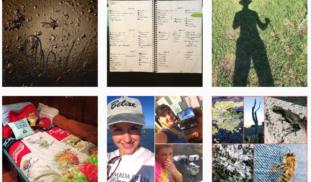Please wait...
About This Project
U.S. adults see scientists as intelligent, but not always warm. This is a problem because people's perceptions of scientists' warmth influence their trust in scientific information. Could scientists be improving trust via social media? We will conduct experiments exploring whether scientists’ humanized Instagram posts influence viewers' perceptions of scientists' competence and warmth.
Help us reach our stretch goal! New perk: $600 (USD) pledge = Custom #SciArt to communicate your research!

Browse Other Projects on Experiment
Related Projects
Can parental humility help us better understand family health?
Family relationships have a significant impact on our health (Chen et al., 2017). But what makes those relationships...
How does the SFFA v. Harvard federal court case decision affect perceived norms?
My experiment builds on the results that the SCOTUS decision regarding gay marriage changed perceived social...
Disclosure of Mental Illness at Work
Deciding whether to disclose a mental illness (MI) at work may have a impact on one's quality of life. Those...




